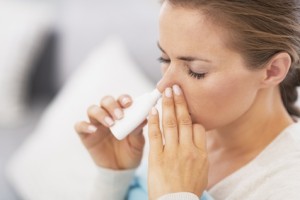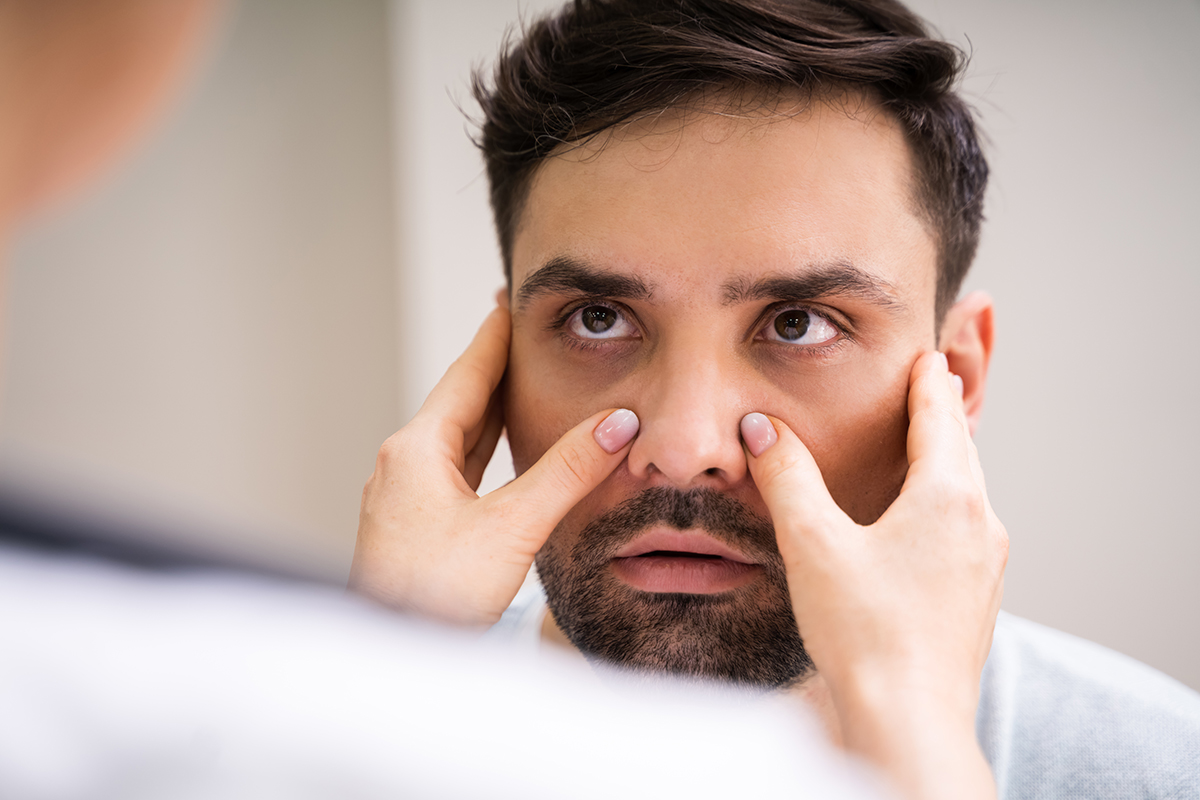This entry was posted on Thursday, March 10th, 2016 and is filed under Blog by AENT Associates
 Approximately 50 million Americans suffer from allergies, with symptoms such as nasal congestion, sneezing, itchy or watery eyes, sore throat being common in all parts of the country. Allergies are immune responses to environmental triggers such as trees pollen, grass, and ragweed. If you have seasonal allergies, your immune system reacts strongly to these triggers. Besides seasonal allergies, many people have perennial allergies or ‘perennial allergic rhinitis’ caused by dust mites, molds, feathers, and pet dander.
Approximately 50 million Americans suffer from allergies, with symptoms such as nasal congestion, sneezing, itchy or watery eyes, sore throat being common in all parts of the country. Allergies are immune responses to environmental triggers such as trees pollen, grass, and ragweed. If you have seasonal allergies, your immune system reacts strongly to these triggers. Besides seasonal allergies, many people have perennial allergies or ‘perennial allergic rhinitis’ caused by dust mites, molds, feathers, and pet dander.
Most people are not completely aware of their allergic triggers despite experiencing persistent health issues. To help bridge the gap, this post discusses five common allergy symptoms and possible treatments.
1. Sinus Pressure or Sinusitis
Sinuses are a connected system of hollow cavities in the skull that are located behind the eyes, forehead, nose, and cheeks. Problems arise when a cold, nasal polyps, or a deviated septum create congestion in those areas. Additionally, dust mites, pollen, and mold can also lead to sinusitis by causing inflammation.
Types of Sinuses
- Ethmoid – Between the eyes
- Frontal – Lower center of the forehead
- Sphenoid – Behind the nasal cavity
- Maxillary – Behind the cheekbones
Treatment
Applying a warm moist cloth over the face and inhaling steam a few times a day are some of the basic ways of treating sinuses. You can also use a nasal spray to mitigate the issue. If the problem persists for more than a week, consult an ENT specialist.
2. Itchy Eyes
Itchy eyes, also known as “Allergic Conjunctivitis” or “Ocular Allergies”, are the most common allergic symptoms that affect one in five Americans. The problem may cause temporary blurriness, redness, burning eyes, and swollen eyelids.
Eye allergies happen due to an issue in our immune system. When the mucous membrane lining of the inner surfaces of the eyelids comes in contact with pollen and other dust particles. the body responds immediately by releasing antibodies such as Histamine in an attempt to fight them. The result is water, itchiness, and redness in the eyes.
Treatment
The treatments for nasal and eye allergies are similar. To avoid itchy eyes, keep the windows shut during seasons when the air is full of pollen. Cover your eyes with a sunglass when you walk outside. Try not to rub your eyes as this will aggravate the issue. Also, place a cold washcloth over the eyes. If your eyes are dry and itchy, you may use an eye drop that contains antihistamine, or go for a prescription allergy medication.
3. Stuffy or Running Nose
The issue of stuffy or runny nose manifests when our body produces Histamine – an organic nitrogenous compound that triggers our natural immune responses to allergens such as tree pollens and dust mites. As the first line of defense, over-the-counter medicines can help reduce the swelling in your nose and clear the breathing passage.
Treatment
You can mitigate the issue of congestion by using nasal irrigation wherein you can use a nasal rinse to flush out excess mucus from the nasal cavity. Antihistamines, cromolyn sodium sprays, and decongestants can also help you reduce nasal allergy symptoms. Always read the instructions carefully and understand them before taking any over-the-counter medicines. Avoid using decongestant nasal sprays for more than three days. Consult an ENT and allergy specialist if the problem persists.
4. Post Nasal Drip
The human body usually produces one to two quarts of mucus that helps prevent bacterial and viral infections. When our system produces more than the usual amount of mucus, it drips down back of the throat and leads to post-nasal drip. This thickening or extra production of mucus happens due to a number of reasons including colds, flu, allergies, sinusitis causing pain and irritation.
Treatment
Keep yourself away from dust and other pollen as they trigger allergies. Drink extra fluids. A saline nasal spray can be effective to thin the mucus. If the problem persists, consult a doctor.
5. Sneezing
Also called “Sternutation,” sneezing is the process through which the body tries to get rid of the irritants from the nose and throat. Though sneezing helps remove bacteria and viruses to protect our body, it becomes annoying in extreme situations. Besides, common cold, nose injury, rhinitis, inflammation of the nasal cavity lining, allergens such as dust, pollen, and mold trigger sneezing.
Treatment
Using an over-the-counter antihistamine can help reduce sneezing, especially if you can’t avoid the allergen causing it. If this medication doesn’t help, better see a health specialist.
Seasonal Allergy Treatment in Houston, TX
Whether you or someone you know suffers from a seasonal or perennial allergy, there is no point in prolonging the misery. Consult an ENT and allergy specialist to find out the exact triggers that cause the problem in the first place, and seek a comprehensive treatment. If you wish to learn more about allergies and their prevention, feel free to connect with our ENT specialists for a free consultation. You can also check the allergies section of our website to learn more about our allergy treatments and procedures.
Tags: Allergy Symptoms, Allergy Treatments, Eye Allergies, Sinusitis



